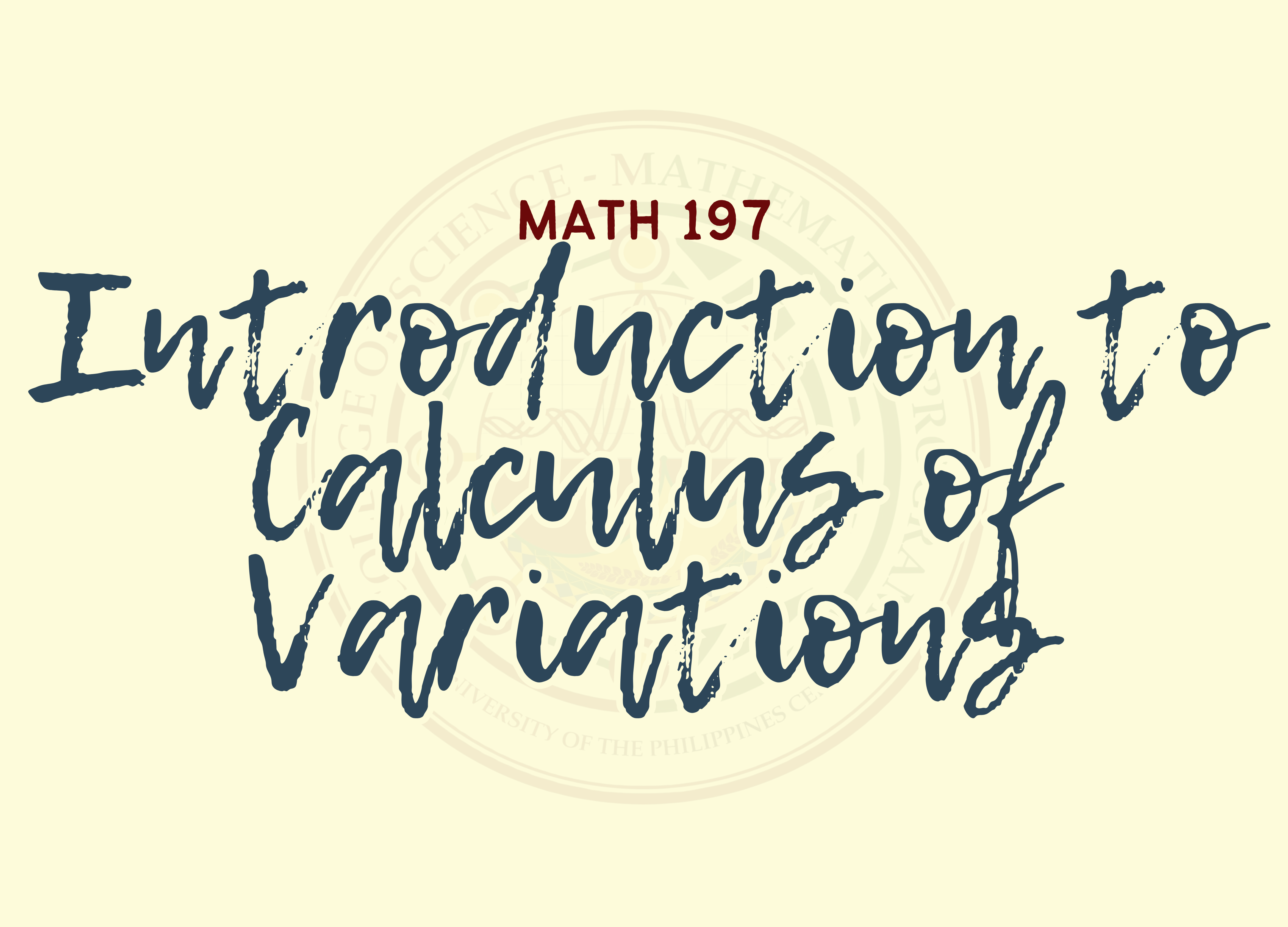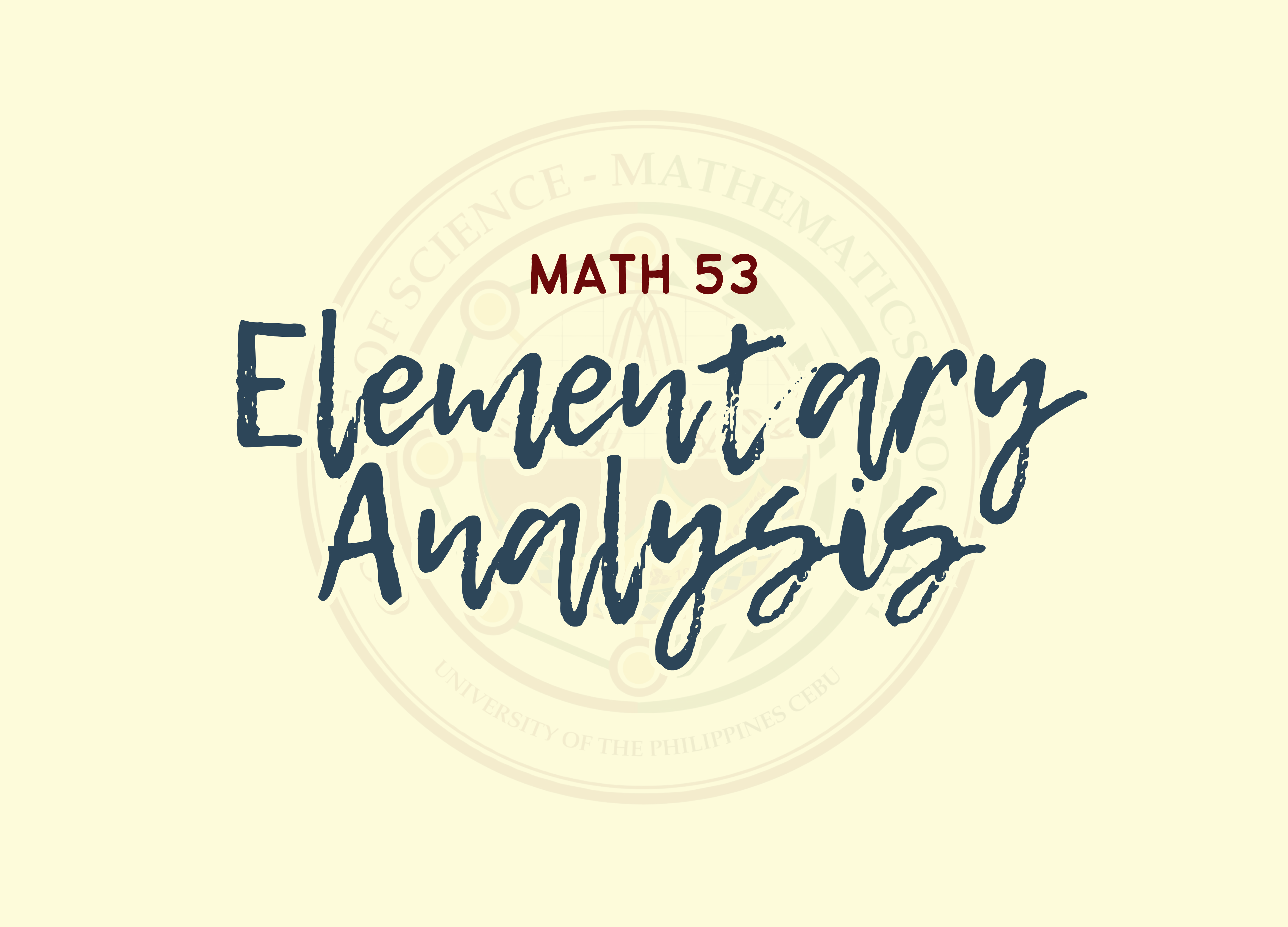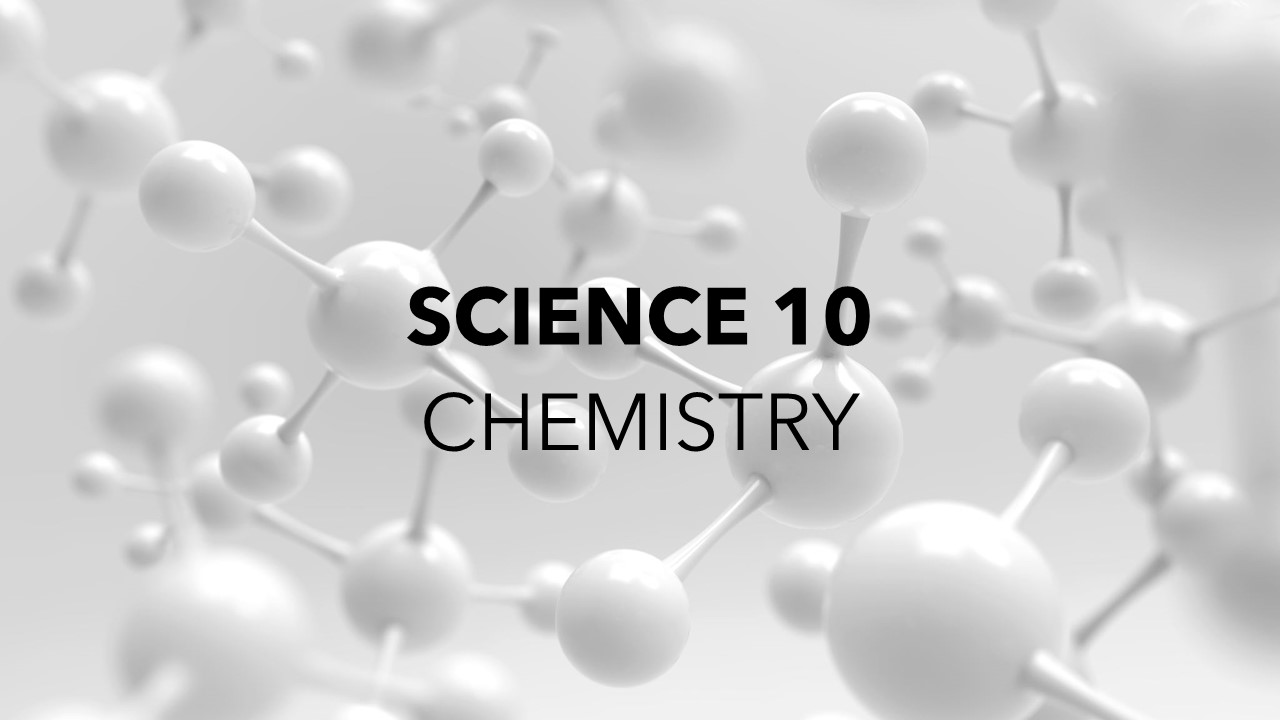
MATH 100: Introduction to Calculus | A.Y. 2025-2026 | Section A| Section
This course covers the notions on limits, continuity, derivatives, differentials, antiderivatives, definite integrals and their applications to management, business and economics. It gives students appreciations of how complex real-world problems can be solved through different tools of calculus such as limits, differentiation, and integration.

Math 197 - Introductions to Calculus of Variations
This course presents the basic theory for, and some applications of, the calculus of variations, with an emphasis on sufficient and necessary conditions for minimizers of variational problems.

Math 53 Elementary Analysis (Section A)
This course covers the notions on limits, continuity, derivatives and their applications, differentials, antiderivatives, definite integrals, and its application. It gives students appreciations of how complex real-world problems can be solved through different tools of calculus such as limits, differentiation, and integration.

MATH 53: Elementary Analysis I | A.Y. 2025-2026 | Section G
This course covers the notions on limits, continuity, derivatives and their applications, differentials, antiderivatives, definite integrals, and its application. It gives students appreciations of how complex real-world problems can be solved through different tools of calculus such as limits, differentiation, and integration.

MATH 53: Elementary Analysis I | A.Y. 2025-2026 | Section B
This course covers the notions on limits, continuity, derivatives and their applications, differentials, antiderivatives, definite integrals, and its application. It gives students appreciations of how complex real-world problems can be solved through different tools of calculus such as limits, differentiation, and integration.

Introduction to Computer Organization, Architecture and Assembly Language (1232)
Computer systems organization from a designer’s point of view; assembly language; addressing, stacks, argument passing, arithmetic operations, decisions, modularization; input/output operations and interrupts; memory hierarchy and cache memory; pipeline design techniques; super-scalar CPU architecture; parallel architectures.

ENS 210 - Environmental Data Analysis and Visualization
Analysis and visualization of data in Environmental Science, with emphasis on exploration and evaluation of data, application of data analysis tools, and creation of informative visual representations of analytical results.

Intermediate Physics 1 (Lecture)
Physics 81 as a foundation
course intends to develop student’s analytical skills and values for them to
acquire a positive attitude toward science particularly physics. The course covers the fields of mechanics, heat and sound.
Different forms of energy will be discussed in the course, namely:
mechanical (kinetic and potential), thermal and sound and how these are
interrelated are given due emphasis. Applications to the other fields of
physical, earth and life sciences will be covered depending on the type of
students.

Chem 23 - Analytical Chemistry
This course covers the principles of quantitative analytical chemistry: chemical equilibria, acid-base titrations, redox reactions, spectrophotometry, and instrumental techniques.
